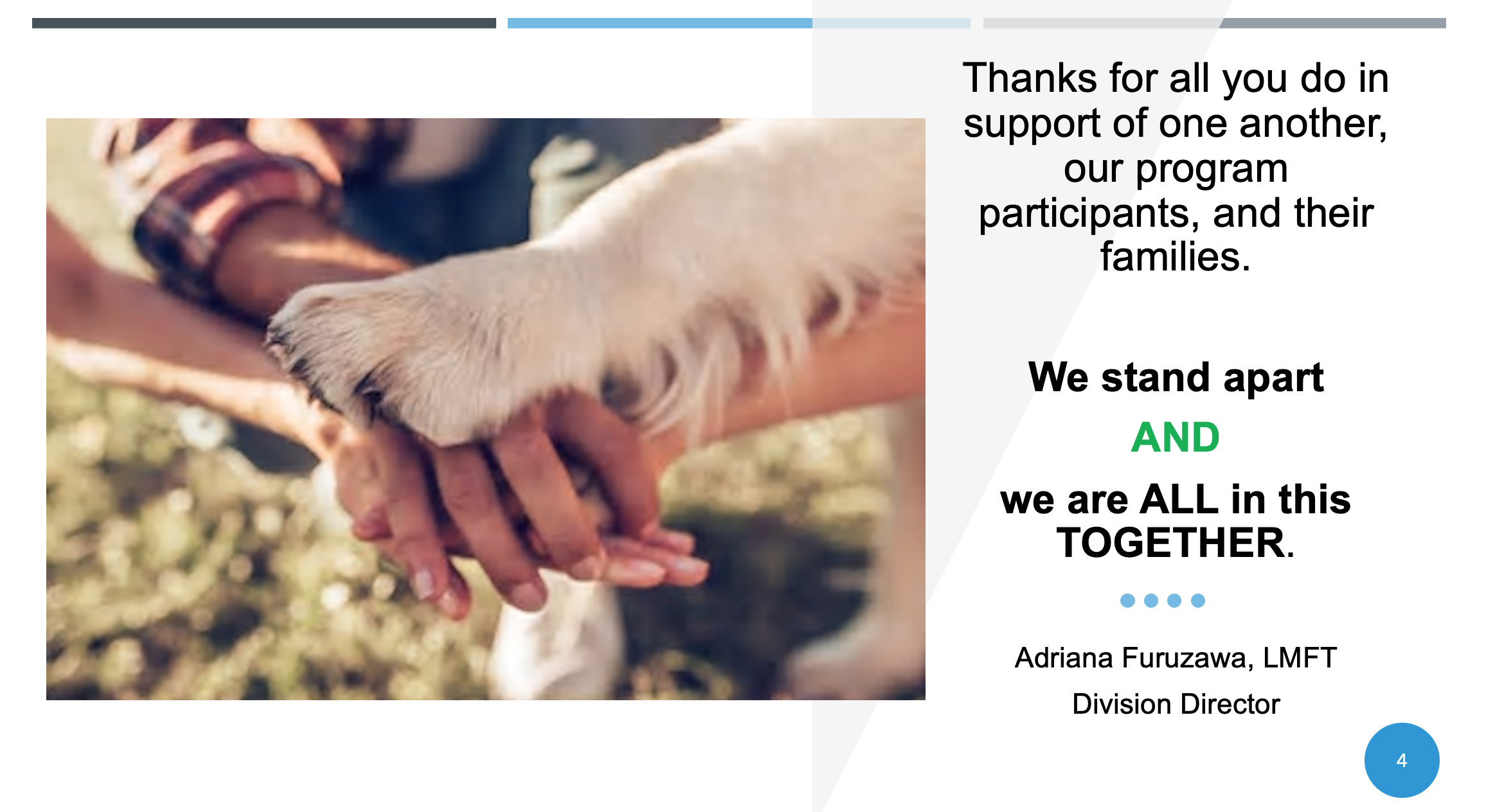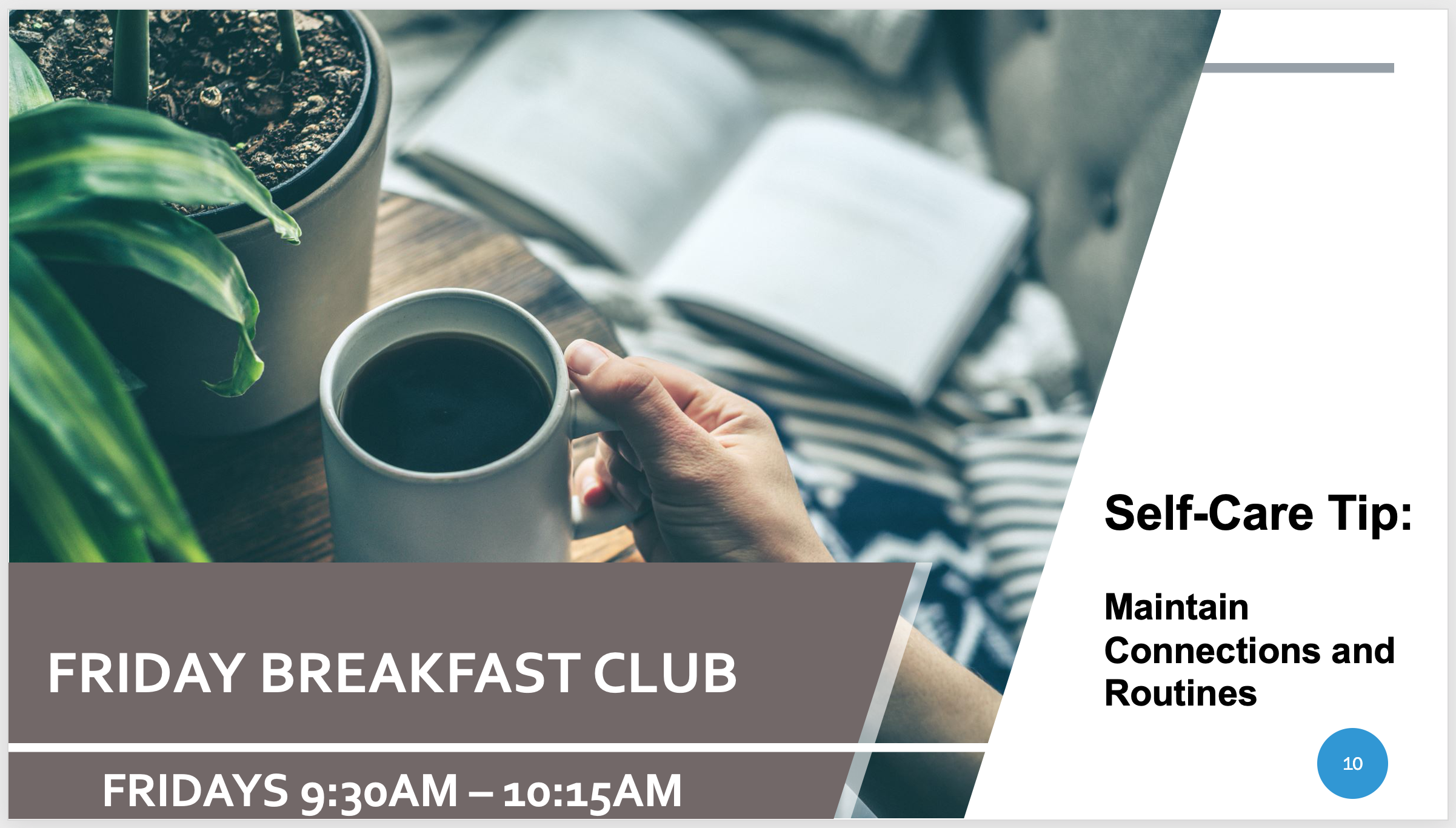A series of virtual town hall events hosted by the Early Psychosis Division have been praised as a success!
Held this year on from April through September on Zoom, the eight town halls shared self-care resources for the teams, compiled community resources for distribution, as well as developed COVID-19 safety protocols for all sites. The department also presented an overview of the final quarter of the fiscal year in numbers.
Sample Slideshow from past Town Halls, focusing self-care and how to say connected in the time of COVID-19
Felton Early Psychosis staff, clients and family members celebrated the milestones of young adults, ages 14 through 35, graduating from (re)MIND® and BEAM (Bipolar Disorder Early Assessment and Management) with graduation ceremonies for 11 graduates at the San Mateo site and 14 graduates from the Alameda site.
All Felton Institute (re)MIND® and BEAM program participants receive a thorough diagnostic assessment and specialized individual therapy. They have access to medication management, case management, occupational and educational support, peer support, and family support, as desired, for up to two years. The goal is to achieve lasting recovery and to foster skills to manage potential residual symptoms.
About Felton Institute: Founded in 1889, Felton Institute responds to human needs by providing cutting edge, evidence-based mental health and social services that transform lives. Felton Institute is a tax-exempt organization registered 501(c)(3) nonprofit under EIN 94-1156530.
Offering more than 50 acclaimed and honored programs that address homelessness, mental health, prenatal, adolescent, adult and senior needs, Felton Institute provides services in San Francisco, Alameda, San Mateo, Marin, and Monterey counties.
Felton is named for its social services pioneer and executive director Dr. Katharine “Kitty” Felton who was called the ”conscience of San Francisco” and was committed to ensuring that children and families in crisis have access to social services and resources in order to help them build upon their inherent strengths and develop self-sufficiency. www.felton.org




